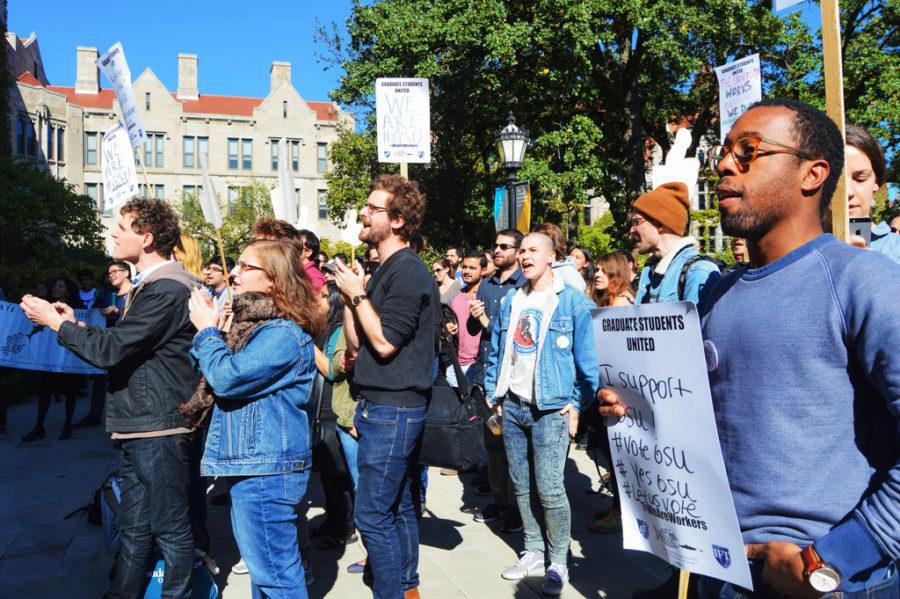Members of Graduate Students United (GSU) accused UChicago of inappropriately using endowment funds and maintaining excessive ties to Wall Street financial markets at a public panel on Monday titled “Where Funds Go to Dine.”
The panelists supported redirecting funds towards reduced tuition, better pay for instructors, and improved health insurance services.They argued that UChicago, with an endowment of more than $7 billion in 2017, has the means to improve working conditions and pay for its employees. They suggested that UChicago has instead chosen to compete with other universities for higher endowments rather than provide such benefits.
Saqib Bhatti, Co-Executive Director of the nonprofit Action Center on Race and the Economy, an organization working on the intersection between racial issues and Wall Street, claimed that universities have placed too much focus on prestige and financial success rather than the educational opportunities they provide to students. He added that the trend of university investment in financial markets have also failed to create wealth which benefits communities and students.
“In the financialized economy, Wall Street makes money by moving other money around out of thin air,” Bhatti said. “The financialized economy is really about wealth extraction.”
Elizabeth Parisian of the Hedge Clippers Campaign, an anti-hedge fund organization, added that UChicago is part of a growing number of universities building closer ties to Wall Street banks.
“Now more than half of leadership positions in research universities come from the finance sector,” said Parisian, referring to financial investors assuming university board positions.“Just as they’ve taken over key decision-making positions in our government, they’re also doing so in our universities.”
Parisian argued that UChicago’s investment in hedge funds and private equity firms indicates just such a Wall Street takeover of universities. She added that administrators might face potential conflicts of interest when allocating UChicago’s endowment funds because of their involvement in the finance industry.
“I estimated that UChicago paid $69 million in fees to hedge funds and private equity firms alone,” Parisian said.
Claudio Gonzales, a fourth-year mathematics graduate student and GSU representative, spoke on UChicago’s failure to boost innovation and improve educational infrastructure, while focusing on its rankings and reputation instead. Gonzales added that larger class sizes, curriculum compression, and the loss of advisory roles for graduate students can be attributed to such a shift in focus.
Though Gonzales recognized that UChicago has the ability to positively influence its educators, students, and the overall Chicago community, he claimed that the university has fallen short here in its disproportionate focus on wealth development.
“UChicago is infamous as this unaccountable ivory tower—this bastion of ever-growing inequality,” he said.
The GSU panel was in light of its push to gain recognition as a union and raise graduate student wages. GSU may consider work stoppage in case its demands for recognition fail during fall quarter.









